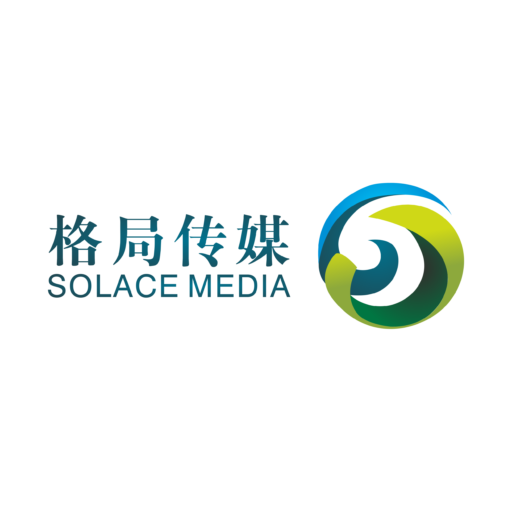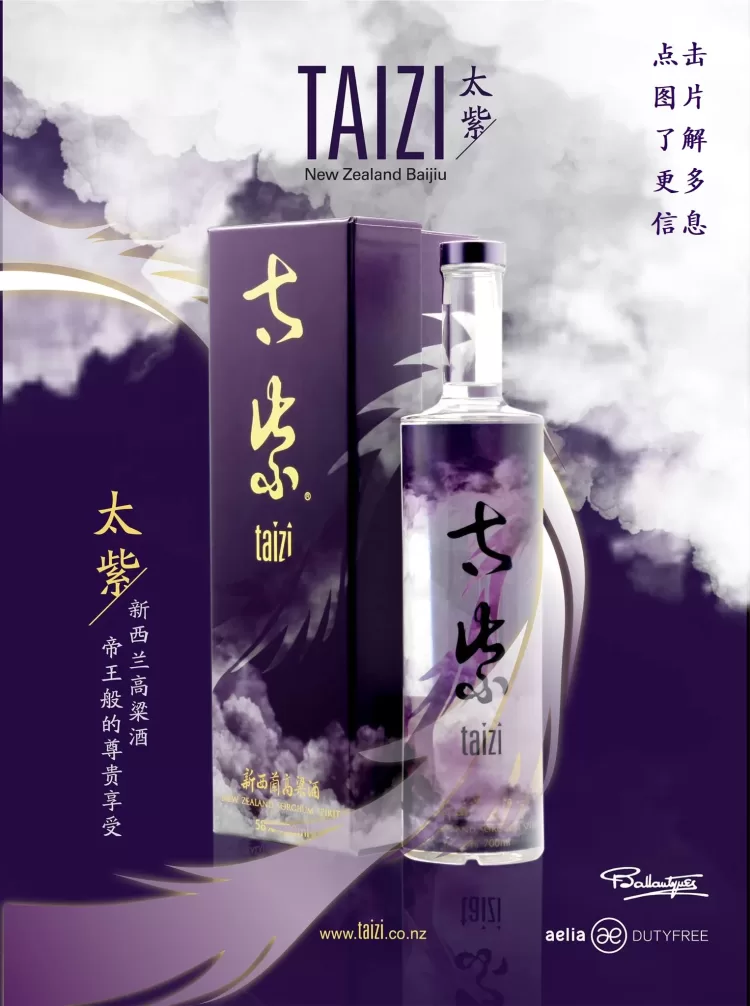During this year’s Two Sessions, China reiterated its commitment to making COVID-19 vaccines global public goods that are affordable and accessible.
In response to the people’s concerns, People’s Daily Online has launched a chat show featuring leading scientist, vaccine manufacturer, foreign opinion leaders and foreign ambassador on the program to share their opinions on COVID-19 vaccines and global cooperation in the post-pandemic era.
Stories from the pandemic
The outbreak of the COVID-19 pandemic worldwide brought massive disruption to people’s social activities and daily lives. Previously normal practices, such as travelling and social interaction, have all become the ultimate luxury.
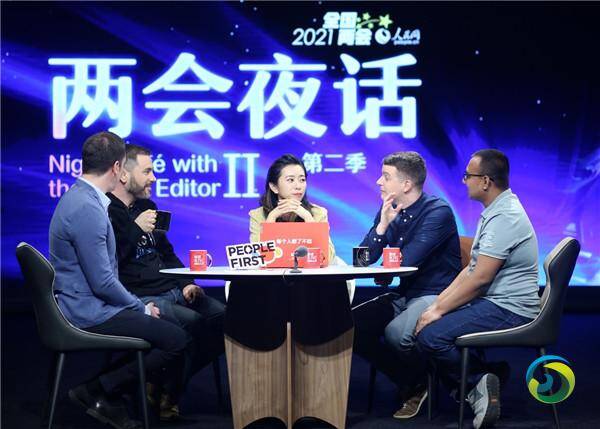 Filmed scene at the Night Café with the Chief Editor (People’s Daily Online/ Yuan Yue)
Filmed scene at the Night Café with the Chief Editor (People’s Daily Online/ Yuan Yue)
“During the quarantine, I really missed my favorite Chinese food, such as hotpot,” said Stuart Wiggin, a famous British online celebrity in China, who added that he had been caught unprepared by the pandemic.
Echoing Wiggin, American actor Jonathan Kos-Read noted that the pandemic has made his life really inconvenient. After first being trapped in Istanbul for days, when he came back to his apartment in Spain, he found that restrictions were even more stringent.
Md Enamul Hassan, a Bangladeshi journalist who tested positive for COVID-19 last October when he entered Guangzhou, shared his experience of receiving treatment in China.
The sincerity and the cordial behavior of the Chinese medical workers really impressed me, said Hassan, adding, “I asked them why they treated me like Chinese people with such sincerity. They said, ‘Actually we are saving humankind’.”
From his personal experience and observation, Hassan concluded that China’s success in battling the COVID pandemic was built on four pillars – “the leadership of the Communist Party of China, applying Western and traditional Chinese medicine together, the confidence of the people in the government and state-of-the-art technology.”
For foreign guests, a universally acknowledged international travel document and the possibility of receiving Chinese vaccines are the most pressing concerns. During this year’s Two Sessions, the Chinese government announced that it will roll out electronic health certificates for international travelers.
“I would really like to take a Chinese vaccine. There’s no nationality in vaccines. As long as they are scientifically proven, they are effective,” said Kos-Read.
“I think Chinese vaccines have brought hope to the whole world. I’m willing to take the Chinese vaccines if I’m permitted to,” said Hassan.
Silver lining of vaccination
Having majored in molecular biology, Kos-Read believes that Chinese vaccines are among the most effective and safe in the world, as the technology it uses is the most mature one.
“The theory of Chinese vaccines goes like this: first you kill the real virus with chemicals, then inject the dead virus into the body. The immune system will tear the dead virus into pieces, and then cells will display the dead virus’ protein on its surface. It is a safe and effective way to tackle the virus,” said Kos-Read.
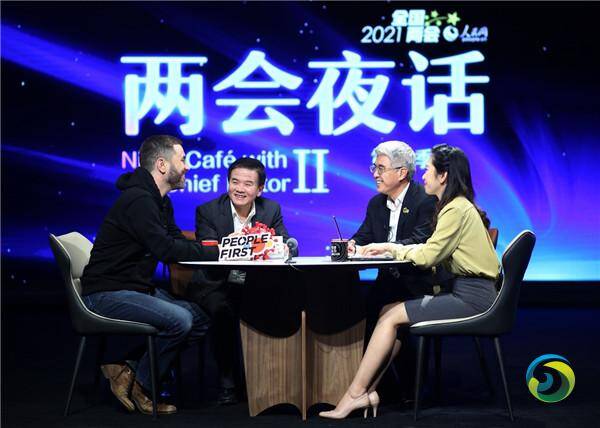 Guests talking about the concept of inactivated vaccines (People’s Daily Online/ Yuan Yue)
Guests talking about the concept of inactivated vaccines (People’s Daily Online/ Yuan Yue)
Gao Fu, Director-General of the Chinese Center for Disease Control and Prevention and an academician of Chinese Academy of Sciences, further explained the effectiveness of Chinese vaccines, noting that after vaccination, the immune system, like a squad of policemen, can distinguish the virus from ordinary cells. Once the virus is targeted, the immune system will catch it.
“Inoculation with COVID-19 vaccines can significantly reduce the probability of occurrence of COVID-19. Even if you get infected by the virus, the chances of severe symptoms or death can be largely reduced with vaccination,” said Zhang Yuntao, vice president and chief scientist of Sinopharm’s China National Biotech Group.
Luo Hua, Editor-in-Chief of People’s Daily Online, called for international vaccination cooperation. He stressed that no matter what kind of technologies are used to produce the vaccines, as long as they are proven safe and effective and can be manufactured swiftly, they should be used to bring benefit to all humankind.
“Vaccines are powerful weapons against the COVID-19 pandemic. Only when herd immunity is achieved can all of us be safe. There should be no vaccine competition, but more vaccine cooperation, so that the world can unite together to tackle the virus,” said Gao.
Vaccines connect the world
Ever since the outbreak of the COVID-19 pandemic, vaccine manufacturing and distribution has become a major concern of every nation and every citizen. As one of the leading powers in this area, China has worked earnestly to improve vaccine accessibility and affordability in developing countries.
So far, China has donated or is donating COVID-19 vaccines to 69 developing countries in urgent need, and is exporting vaccines to 43 countries. Chinese State Councilor and Foreign Minister Wang Yi noted that vaccines will inject more confidence and hope into the global fight against the virus.
Based on mutual trust, the UAE was one of the first nations to conduct vaccine cooperation with China. In the summer of 2020, vaccines designed by Sinopharm were put into clinical trial in the UAE. In September 2020, the UAE become the first nation to permit the emergency use of Chinese vaccines. In December 2020, Chinese vaccines were approved in the UAE.
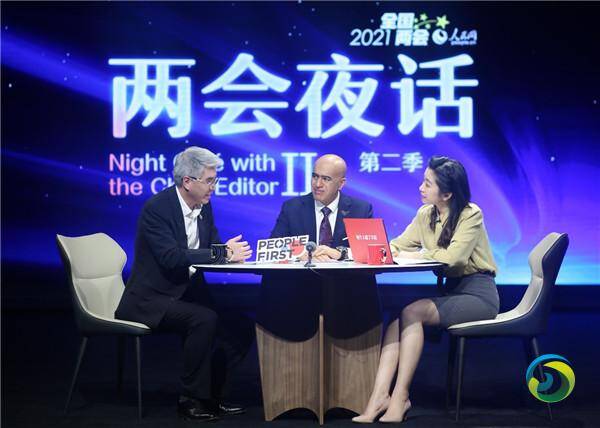 Luo Hua (L) , Editor-in-Chief of the People’s Daily Online, Sheng Chuyi (R), English editor of the People’s Daily Online, and Ali Al Dhaheri, UAE Ambassador to China (M) talk about global cooperation in the fight against the pandemic (People’s Daily Online/ Yuan Yue)
Luo Hua (L) , Editor-in-Chief of the People’s Daily Online, Sheng Chuyi (R), English editor of the People’s Daily Online, and Ali Al Dhaheri, UAE Ambassador to China (M) talk about global cooperation in the fight against the pandemic (People’s Daily Online/ Yuan Yue)
“Through all this process, we have been able to send a message of trust, of confidence in the Chinese vaccine,” said Ali Al Dhaheri, the UAE ambassador to China.
When talking about the cooperation with China in pandemic control, the ambassador revealed that the two nations are currently working together on the development of vaccines, while the pandemic has brought new cooperation opportunities in areas such as science, technology and health care. The two nations will further strengthen cooperation in virus tracking, vaccine distribution and logistics, he added.
“In the face of the COVID-19 pandemic, no country or person can remain safe alone. Only by working together can we defeat the pandemic,” said Luo.
